Following this code snippet. I'm trying to understand if it's possible to access nested properties of the object within Switch statement, without the need to unwrap properties inside the 'case' itself (avoid unneeded closures). Here's a stupid-simple example. of course, the compilers fail with (code snippet below image):
class Z {
var common = 4
}
class A: Z {
}
class B: Z {
}
class C: Z {
var specific: String? = "%"
}
let unknown = Z()
switch (unknown, unknown.common) {
case (let a as A, 4):
break
case (let b as B, 4):
break
case (let c as C, 4), let nonNilSpecific as? String:
// use nonNilSpecific WITHOUT unwrap it within the case clousre
break
default: break
}
